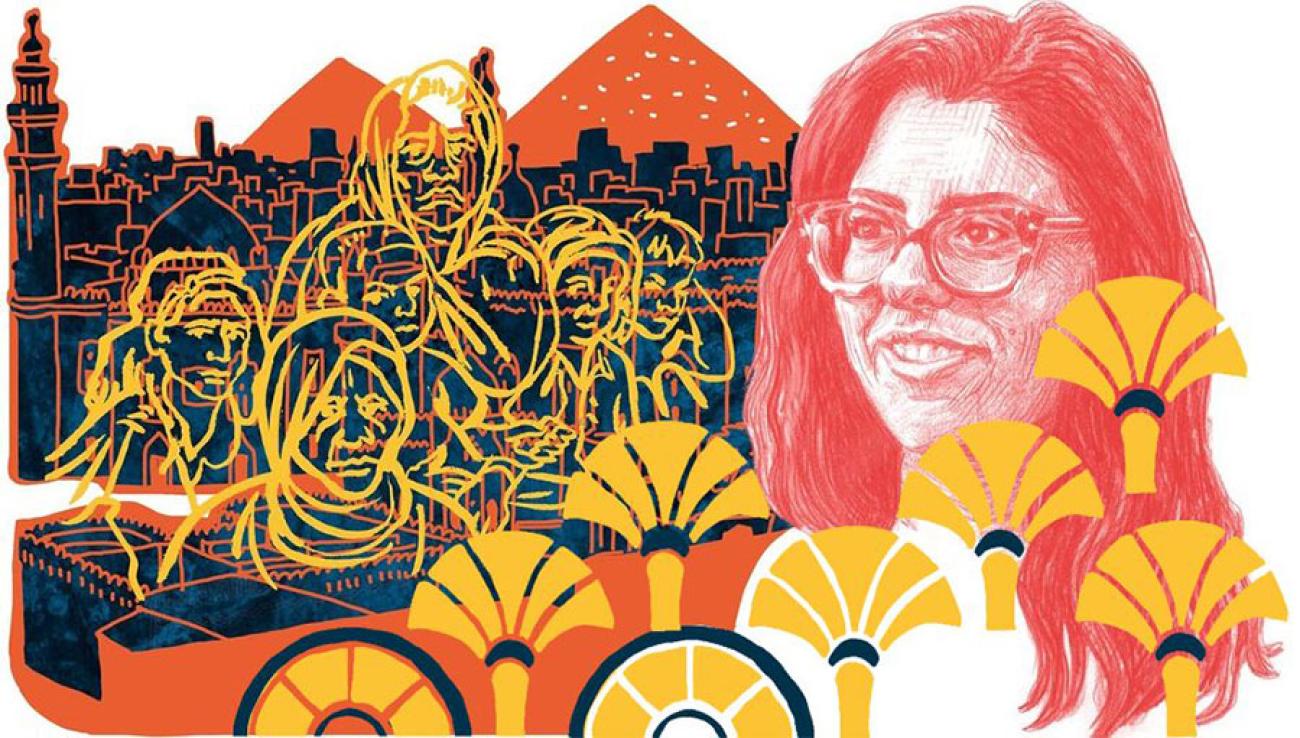Farah Nassef, 26, knows how easy it is to lose everything and be driven out of your home.
“One of my relatives was forced to leave the country to avoid the forced military conscription of her sons. She left her house, friends, and the life she had built up for decades due to the devastating consequences of the war,” Farah explains, who is former UN Volunteer Child Protection Assistant with UNHCR in Cairo.
Before this happened, wars, conflicts and refugees all seemed like a distant reality to Farah — something she would only read about in newspapers or hear on the news. But all of that was about to change. Farah had the eye-opening realization that gave her a new sense of purpose: support the needs of migrants and refugees, like her relatives who, in that moment, couldn’t fend for themselves.
''Now I realise that anyone can be put in a situation where they are forced to flee their home, and it makes me feel infinitely more grateful for every privilege I have in my life.”, said Farah.
Farah embarked on her volunteering journey through a non-governmental organization as a university student in the United Kingdom. She helped migrant and refugee parents learn English and become more involved in their children’s schooling. She also volunteered at a community center to help refugees improve their conversational English skills.
With this volunteering experience and a Master’s degree in International Relations under her belt, working with refugees became a central focus in Farah’s life. “I applied for several job and volunteering opportunities that involved working with refugees. This is how I started my two-year journey as a UN Volunteer at the UNHCR in Cairo, Egypt.”
The United Nations High Commission for Refugees (UNHCR) provides registration, refugee status determination, and protection assistance to refugees and asylum seekers from 58 nationalities, in coordination with national and international NGOs.
In her role as UN Volunteer Child Protection Assistant, Farah helps to protect vulnerable refugee children. She draws on her expertise and life experience to provide a range of services — including counselling, and assessing risks and protection needs in the best interest of the children.
The majority of children Farah works with are unaccompanied — having arrived in Egypt without their parents or a legal caregiver. Other vulnerable children include those facing abuse, violence, exploitation or neglect.
"We liaise with partners and local leaders to identify members of the community who are capable of providing help, and then monitor the process," Farah explains. "I regularly facilitate community meetings and trainings, to get people’s help in identifying and referring cases."
Farah’s role does not come without challenges. Cairo, an over-populated urban setting, is an extremely difficult to oversee refugee children.
But those moments when a life changes — and you witness it — are unforgettable. Like the moments when children reunite with their families. This is what Farah’s work is all about:
"One of my favourite memories was interviewing a 14-year-old boy, and discovering he had a brother living here he was unaware of. We reunited them, and both were overwhelmed and tearful; it was such a wonderful moment. They have been living together ever since”, said Farah.




